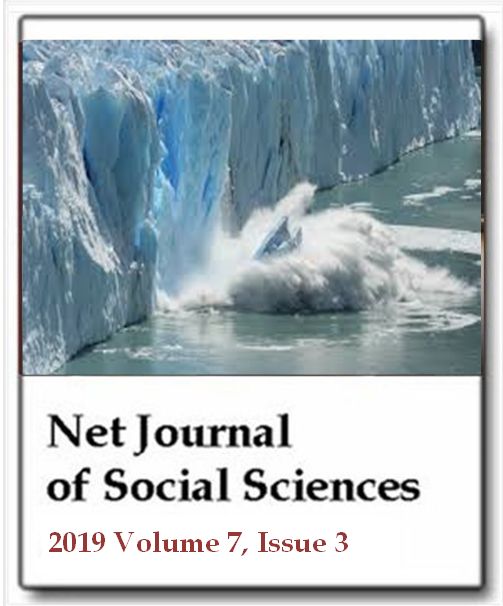Self-efficacy as correlates of students’ academic performance in financial accounting in secondary schools in Abia State, Nigeria
Faith Chukwudi Nwaukwa, Chiamaka Chikezie Onyemechara and Samuel Ikechukwu NdubuisiNet Journal of Social Sciences
Published: September 26 2019
Volume 7, Issue 3
Pages 76-84
Abstract
The need to improve the performance of students in financial accounting necessitated this study to ascertain self-efficacy as correlates of students’ academic performance in financial accounting in secondary schools in Abia State, Nigeria. Correlational research design was adopted for the study. The population of the study comprised 846 SS 2 financial accounting students of 2018/2019 session in state owned secondary schools in Abia State and 271 students were drawn using Taro Yamane formula. Self-efficacy Questionnaire (SEQ) and Financial Accounting Performance Test (FAPT) were used for data collection. The researchers with the help of three research assistants distributed copies of the SEQ to the participants in their classes. On-the spot distribution and collection was used. The reliability of SEQ was established using Cronbach alpha method which yielded correlation coefficients of 0.87, 0.91 and 0.86 for sections A to C and overall correlation value of 0.88. Pearson product moment correlation coefficient was used to answer the research questions and test the hypotheses. The findings revealed (1) the positive and high relationship between students’ mastery experience, vicarious experience and their academic performance in financial accounting; (2) the negative and high relationship between students’ social persuasion and their academic performance. The findings also indicate the significant impact of students ‘both types of experiences (mastery and vicarious) and social persuasion on the students’ academic performance in the subject. The study strongly indicates the powerful effects of mastery experiences, vicarious experiences and social persuasion on improving students’ academic performance. They, therefore, should be used to increase students’ self-efficacy and academic performance.
Keywords: Self-efficacy, financial accounting, academic performance, secondary school.
Full Text PDF
